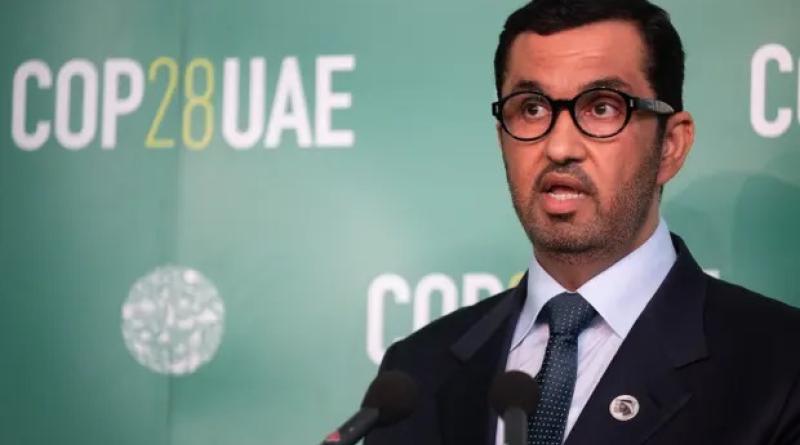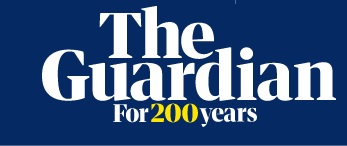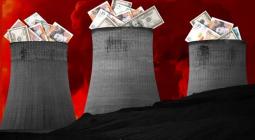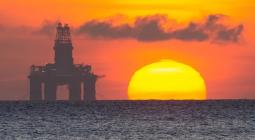Fossil fuel lobbyists will have to identify themselves when registering for Cop28

Fossil fuel lobbyists will have to identify themselves as such in registering for the UN Cop28 climate summit, making polluting and carbon-intensive industries more accountable at the annual talks.
The move by the UN to require anyone registering for the summit to declare their affiliation was heralded as a victory for transparency by campaigners who have been increasingly concerned at the growing presence of oil and gas lobbyists at climate talks.
Scott Kirby, a campaigner from Youngo, which represents youth campaigners at the UN climate talks, said: “When young people see the number of fossil fuel lobbyists present at UN Framework Convention on Climate Change conferences, it makes us question the ability this process has to solve the biggest challenge threatening our futures. This is why we welcome the step to increase transparency of observer interests in the talks.”
Many campaigners said the change to make potential conflicts of interest more apparent should be only a first step towards excluding fossil fuel companies from the talks, or from key parts of them.
Hwei Mian Lim, of the Women and Gender Constituency, said: “We can only meaningfully tackle the climate crisis when we kick big polluters out. Fortunately, we have the real solutions, including gender-just climate solutions, and have the power in collective feminist movements to prevent untold suffering, in particular among women and girls in the global south.
“This is strengthened with weeding out the undue influence of big polluters that seek to undermine climate action. Cop28 is our best chance to start implementing them and we must do so in the most gender responsive, and effective and impactful way.”
The change came as nations wrapped up nearly two weeks of talks in Bonn, where officials tried to lay the groundwork for Cop28, which starts on 30 November.
The event will be held in the United Arab Emirates, a major oil and gas producer, and chaired by Sultan Al Jaber, who is head of the UAE national oil company, Adnoc. The company is planning a large expansion of its production capacity, and last year it sent scores of executives to the Cop27 climate summit in Egypt.
Al Jaber attended the Bonn talks for two days last week and spoke only briefly in public. He said: “The phase-down of fossil fuels is inevitable. The speed at which this happens depends on how quickly we can phase up zero-carbon alternatives, while ensuring energy security, accessibility and affordability.”
He failed to give an assurance that a phase-out of fossil fuels would be on the official agenda at Cop28, despite a concerted push by many developed and developing countries for its inclusion. The UAE Cop28 presidency has insisted it is up to all the countries represented at the talks to make decisions on the agenda.
Progress was slow at the Bonn talks, where countries had been hoping to clear away minor technical issues so heads of government could come to Cop28 to make the bold political decisions needed to put the world on track to meet the 2015 Paris climate agreement.
Officials could not even agree an agenda for these preliminary talks. For most of the fortnight, the adoption of an official plan for the Bonn talks was delayed by an impasse between developing countries, which are frustrated that promised financial assistance has not been forthcoming, and rich nations that wanted the focus to be on cutting greenhouse gas emissions.
Harjeet Singh, the head of global political strategy at Climate Action Network International, put the blame squarely on rich governments. “The Bonn climate conference laid bare the glaring hypocrisy of wealthy nations, showcasing a remarkable indifference to the struggles of developing countries,” he said.
“Let’s be clear: without honouring their financial pledges – directly tied to their historical role in driving the climate crisis – these affluent nations lack the moral authority to exert pressure on poorer countries. Developing nations face the monumental task of eradicating poverty, fostering green development, and coping with escalating climate disasters. They deserve unwavering support, not undue pressure.”
Eventually, with only a day’s negotiations left, the impasse was resolved so that progress made during the talks could be officially recognised.
Poor countries are hoping for further progress on climate finance from a conference expected to be attended by more than 50 world leaders in Paris next week, hosted by the French president, Emmanuel Macron, and the prime minister of Barbados, Mia Mottley.
Reform of the World Bank, International Monetary Fund and other global financial institutions will be on the agenda, and countries will be expected to come forward with new ideas on how to mobilise the trillions needed for developing countries to shift their economies to a low-carbon footing and prepare for the impacts of the climate crisis.
Left unresolved at Bonn was the question of which country would host next year’s summit, Cop29. It is the turn of the eastern group, which comprises Russia and former eastern bloc countries in Europe and central Asia. Tensions over the Ukraine war have riven the group, and within eastern European countries there are rivalries and feuds.
Bulgaria is one candidate, but a highly placed European source told the Guardian that the country’s delegation had failed to attend EU coordination meetings at Cop27. The controversy looks unlikely to be resolved soon, and a decision could be put off to the end of Cop28.
cover photo:Sultan Al Jaber speaks at the climate conference in Bonn, Germany. Photograph: Benjamin Westhoff/EPA





